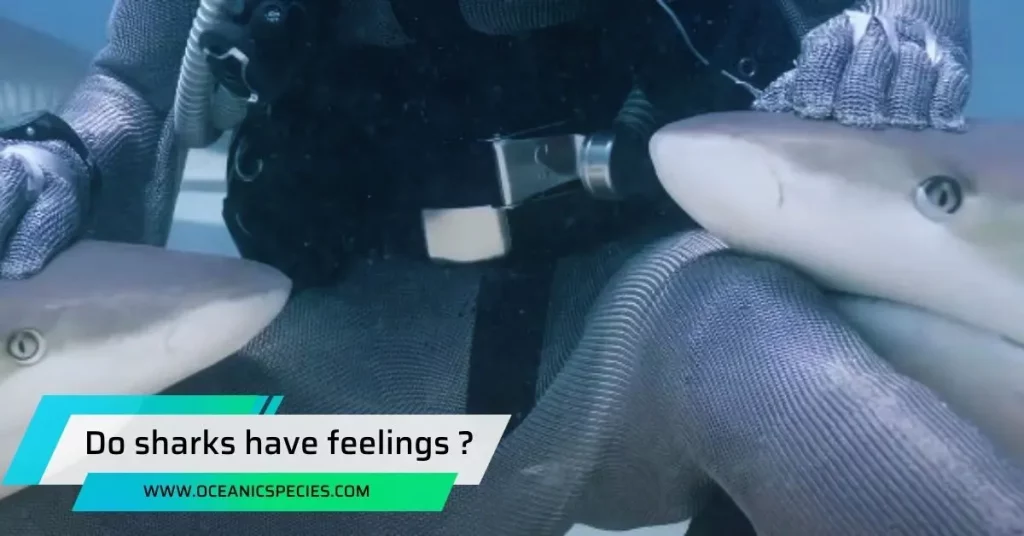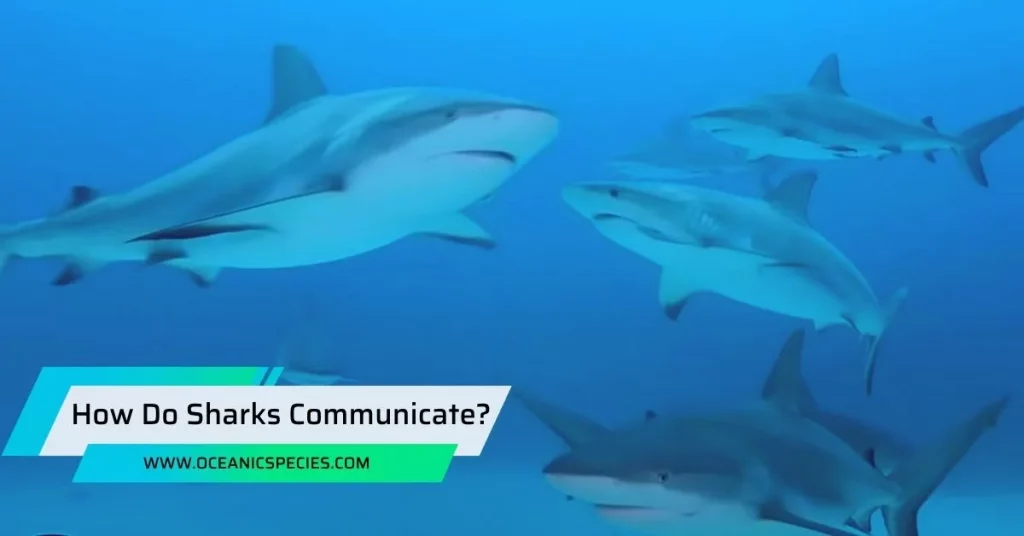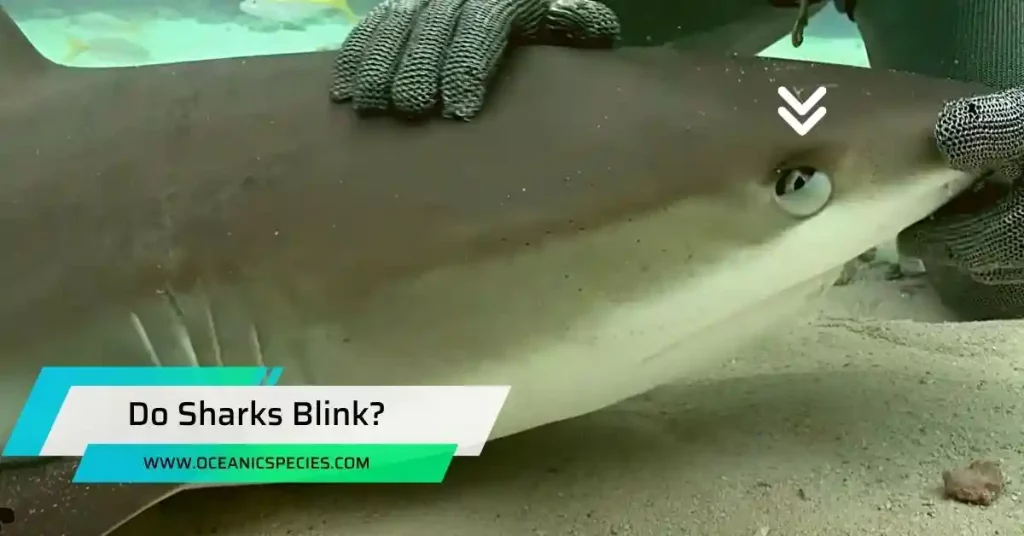Yes, sharks have feelings. They possess a complex range of emotions and social behaviors, indicating a level of intelligence and consciousness similar to that of mammals.
Contrary to popular belief, sharks are not mindless killing machines; they display a variety of behaviors that demonstrate their capacity for emotions. From social bonds and communication to learning and problem-solving, these creatures exhibit a remarkable level of emotional sensitivity.
Understanding and respecting their emotional lives is essential for the conservation and protection of these vital apex predators. By recognizing their feelings, we can foster a more compassionate and harmonious coexistence with these fascinating creatures in our oceans.
Emotional Responses To Surroundings: Fear, Joy, And More
While sharks are often portrayed as ruthless predators, recent research suggests that they are capable of experiencing a range of emotions.

In this section, we will explore some of the emotional responses that sharks exhibit, including fear and joy.
Fear: The Survival Instinct Of Sharks
Sharks have a well-developed sense of fear, which plays a crucial role in their survival. When sharks perceive a potential threat, such as the presence of a larger predator or a sudden disturbance in their surroundings, they may exhibit fear responses. These fear responses can include increased heart rate, erratic swimming patterns, and even the release of stress hormones. Sharks may also display defensive behaviors, such as bared teeth, arched backs, or exaggerated movements, as a way to deter potential threats. It’s important to note that fear in sharks is not the same as the human emotion of fear. Instead, it is an instinctual response that helps them navigate their environment and avoid dangerous situations.
Joy: Moments Of Playfulness In Shark Behavior
While it may be surprising to think of sharks as playful creatures, there is evidence to suggest that they do experience moments of joy. Sharks have been observed engaging in playful behavior, such as chasing each other, rolling in the water, or leaping out of the water. These moments of playfulness are thought to serve multiple purposes, including exercise, social bonding, and stress relief. Play can also be a way for sharks to explore their surroundings, practice hunting techniques, or simply enjoy the exhilaration of movement. It’s fascinating to think that even in their marine environment, sharks can find joy and happiness in these playful interactions.
Conservation Implications: Protecting Sharks
Understanding the emotional well-being of sharks and the conservation efforts surrounding their protection is crucial in dispelling misconceptions and nurturing a healthier coexistence with these magnificent creatures.
Emotional Well-Being And Conservation Efforts
It is widely accepted among researchers and marine biologists that sharks display certain emotional behaviors, indicating that they possess some form of emotional well-being. Here are some key points to consider:

- Behaviors as indicators: Sharks exhibit behavioral traits that are often regarded as indications of emotional states. These include curiosity, playfulness, and even expressions of affiliative behaviors. These observations suggest that sharks possess a certain level of emotional complexity.
- Stress response: Similar to other animals, sharks can experience stress. Factors such as capture, confinement, and environmental changes can induce stress responses in sharks, affecting their overall well-being and potentially leading to negative impacts on their health.
- Social bonding: Studies have revealed that some shark species, such as the lemon shark, exhibit social bonding behavior. They form social groups and exhibit preferences for certain individuals, indicating the presence of social interactions and relationships.
- Environmental perception: Sharks demonstrate the ability to perceive their environment through sensory systems, allowing them to navigate, find prey, and avoid potential threats. These abilities suggest a level of conscious awareness and perception.
Raising Awareness: Changing Perceptions Of Sharks
To protect sharks effectively, it is crucial to change public perceptions and foster a greater understanding of their importance in the marine ecosystem. Here are some key strategies for raising awareness:
- Education and outreach programs: Implementing educational initiatives that provide accurate information about sharks and dispel common myths and misconceptions is vital. Such programs can be targeted towards schools, communities, and various stakeholders to educate and engage people in shark conservation.
- Promoting ecotourism: Encouraging responsible ecotourism that focuses on shark encounters can help people appreciate their beauty and ecological significance. This approach allows for a firsthand experience that challenges negative perceptions, ultimately fostering a mindset of conservation and protection.
- Supporting scientific research: Continued scientific research is essential for understanding shark behavior, habitats, and the impacts of human activities. By supporting research endeavors, we can uncover valuable insights that contribute to effective conservation strategies.
- Implementing protective measures: Establishing marine protected areas and regulating fishing practices are crucial steps in safeguarding shark populations. By creating protected zones and enforcing strict regulations, we can ensure sharks have a safe haven to thrive and maintain balance within marine ecosystems.
Frequently Asked Questions
How Do Sharks Communicate With Each Other?
Sharks communicate through body movements, postures, and chemical signals. They also use electric signals to interact and coordinate with other sharks.
What Do Sharks Eat?
Sharks have a diverse diet that includes fish, seals, sea turtles, and even other sharks. Their diet varies depending on their size and species.
Can Sharks Recognize Individual Humans?
While sharks have an impressive sense of smell, they do not have the ability to recognize individual humans. They rely on their sense of smell to detect prey.
Are Sharks Endangered?
Many shark species are facing the threat of extinction due to overfishing and habitat destruction. Conservation efforts are crucial to protect these remarkable creatures.
Conclusion
It is clear that sharks do have feelings, despite the common misconception that they are aggressive and unfeeling creatures. The scientific evidence presented in this blog post supports the idea that sharks possess a range of emotions and behaviors that are indicative of the capacity to feel.
From their ability to form social bonds and display courtship rituals to their responses to stress and pain, sharks demonstrate a level of emotional complexity that cannot be ignored. Understanding and acknowledging these feelings is crucial for the conservation and protection of these magnificent creatures.
By debunking myths and misconceptions about sharks, we can foster a greater sense of empathy and appreciation for their role in the ecosystem. It is our responsibility to ensure their survival and maintain the delicate balance of our oceans.





